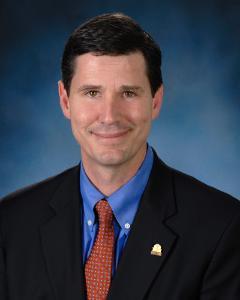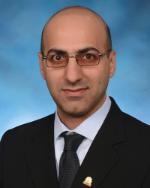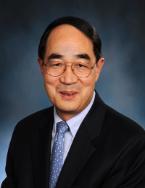Division Chief

John Olson Jr., MD, PhD
The academic mission of the Division of General and Oncologic Surgery is to create an environment of scholarship, built upon the principles of scientific discovery, innovation, and education. Our federally-funded basic and translational research programs reflect the breadth and depth of our faculty’s expertise in mucosal biology and host defense, the immunobiology of and molecular pathogenesis of cancer, and cell signaling in health and disease. Our clinical and education research programs highlight the innovative and problem-solving nature of our surgical faculty, focusing on novel device development and the discovery and dissemination of novel approaches to surgical education. Finally, our health services research group investigates patterns of care and treatment outcomes for cancer patients in both Maryland and nationally.
Highlights of our research include:
- Discovery that protein phosphatase 2A (PP2A)-associated protein α4 plays an important role in intestinal mucosal regeneration and defense through modulation of specific microRNAs (miRNAs) and long ncRNAs (lncRNAs) that are critical to intestinal cell apoptosis. (Jaladanki lab)
- Development of a surgical tool designed to provide location data by the use of direct touch and indirect measurements with the combination of motion tracking and computational analysis. (Pearl lab)
- Identification of novel circulating RNAs involved in the control of gut mucosal repair after acute injury in critical surgical conditions, creating a fundamental basis for developing new therapies to protect the gut epithelium and enhance mucosal repair in patients with critical surgical illnesses. (Wang lab)
- Development of novel time-tradeoff models for comparative effectiveness research in endocrine surgery / surgical oncology (Hu lab)
- Discovery and characterization of novel G-protein coupled receptors in neuroendocrine tumors (Balenga lab)
- Identification of novel anti-CTLA4 antibodies that promote immunotherapy-related adverse effects, offering a therapeutic strategy to mitigate adverse events in cancer immunotherapy. (Liu lab)
- Identification of parathyroid tumor subtypes with differing underlying disease mechanisms and treatment outcomes in primary hyperparathyroidism (Olson lab)
Nariman Balenga, PhD

Nariman Balenga, PhD
Mechanisms of activation, signaling and trafficking of adhesion GPCRs GPR64 and GPR56
G protein-coupled receptors (GPCRs) transmit the extracellular stimuli into intracellular signals, by which they can orchestrate a myriad of cellular and physiological processes. GPCRs form the largest superfamily of surface receptors and their aberrant function causes diseases such as cancer, asthma, hypertension, endocrine and musculoskeletal dysfunction. Adhesion GPCRs (aGPCRs) are the second largest but the least studied family of GPCRs and have recently gained much interest due to their direct or indirect involvement in various diseases. In order to target aGPCRs therapeutically, we need to understand the mechanisms by which they are activated and the intracellular signaling cascades that they initiate. aGPCRs have an unusually long N-terminal fragment (NTF) that is cleaved during their biosynthesis but stays bound to the rest of the receptor non-covalently. The processes taking place after binding of extracellular ligands to this NTF can vary for different aGPCRs. While such interactions can stabilize a certain conformation and trigger or inhibit signaling in some aGPCRs, it can also dissociate the NTF and unmask a small tethered peptide (stalk) on the very N-terminus of the remaining receptor. We showed that the NTF of ADGRG2/GPR64, an orphan aGPCR, functions as an inhibitor and its deletion results in a receptor that is constitutively activated by its stalk. We provided compelling evidence that GPR64 regulates secretion of parathyroid hormone, a master regulator of bone metabolism by human-derived parathyroid adenoma cells. Via molecular and cellular assays, we have demonstrated that NTF-deficient GPR64 elevates cAMP levels by activating adenylyl cyclase, interacts with b-arrestins, becomes ubiquitinated and internalizes via unknown mechanisms. A mutant that lacks this tethered peptide and NTF (stalk-less) is devoid of constitutive activity but responds to the exogenously added synthetic tethered peptide and interacts with b- arrestins. The underlying mechanism for recruitment of b-arrestins by stalk-less GPR64 in the absence of G- protein signaling is not clear. These published and preliminary data combined with our current knowledge of another closely related aGPCR, ADGRG1/GPR56 lead us to hypothesize that specific structural elements control signaling, endocytic pathways and physiological functions of these aGPCRs. To shed light on the pharmacological and physiological characteristics of these receptors, we will: (1) Determine the impact of NTF and its cleavage on the binding of tethered peptides and trafficking of GPR64 and GPR56; (2) Identify the structural motifs and intracellular regulators that control G-protein and b-arrestin signaling downstream of GPR64 and GPR56 and (3) Determine the effects of GPR64 signaling and its NTF and stalk on bone development in Zebrafish, a low vertebrate model organism. These novel translational studies will greatly bolster our understanding of aGPCR pharmacology and lay the foundation for rational design of therapeutics for diseases caused by aGPCRs.
- Sponsor: NIH – National Institute of General Medical Sciences
Rao Jaladanki, PhD
Rao Jaladanki, PhD
Surgical Studies on Mucosal Homeostasis
Patients with critical surgical disorders such as trauma, thermal injury, shock, sepsis, and massive surgical operations are commonly complicated with acute gut mucosal injury and bleeding. Disruption of the gut epithelial integrity causes sepsis and in some instances acts as the trigger that drives multiple organ dysfunction syndrome (MODS), a leading cause of death in critically ill patients. Effective therapies to enhance mucosal defense and promote epithelial repair after acute injury in patients with critical surgical illnesses are limited, contributing to massive mucosal hemorrhage, impaired repair, and gut barrier dysfunction. During the previous funding periods, we have demonstrated that protein phosphatase 2A (PP2A)-associated protein α4 plays an important role in intestinal mucosal regeneration and defense, but its exact mechanism underlying α4-regulated intestinal homeostasis remains largely unknown. Noncoding RNAs (ncRNAs), including microRNAs (miRNAs) and long ncRNAs (lncRNAs), have recently emerged as a novel class of master regulators of the intestinal epithelium homeostasis and are also implicated in different human diseases. miRNAs and lncRNAs modulate expression of target genes and thus regulate a variety of cellular processes. Our preliminary results indicate that a) targeted deletion of α4 in mice decreased the levels of mucosal miR-503 and lncRNA uc.230 in the intestine; b) specific inhibition of miR-503 and uc.230 by transfection with their antagonisms repressed intestinal epithelial repair after wounding and also enhanced epithelial cell apoptosis; and c) miR-503 inhibited expression of antizyme (AZ; a negative regulator of polyamine biosynthesis), whereas uc.230 up-regulated Rac1 and inhibitor of apoptosis protein 1 (IAP1). Based on these exciting observations, we HYPOTHESIZE that α4 promotes intestinal epithelial homeostasis by modulating miRNA miR- 503 and lncRNA uc.230 in critical surgical conditions. Three specific aims are proposed to test the hypothesis: 1) to examine the expression profiles of miRNAs and lncRNAs in the α4-deficient intestinal epithelium in response to surgical stress; 2) to determine the exact roles of miR-503 and uc.230 in α4-regulated mucosal repair and apoptosis; and 3) to define the mechanisms by which miR-503 and uc.230 regulate expression of AZ, Rac1, and IAP1. Completion of these specific aims will make a conceptual advance by linking α4/ncRNA pathway with gut epithelium homeostasis under critical surgical conditions. These studies will also create a fundamental basis for development of novel therapies to preserve epithelial integrity in our VA patients, thus decreasing morbidity and mortality of massive mucosal injury and inflammation, delayed repair, sepsis, and MODS by targeting α4 and its regulatory ncRNAs.
- Sponsor: VA Maryland Healthcare System
Stephen Kavic, MD
Stephen Kavic, MD
Love at First Click: Surgery Residency Websites in the Virtual Era
Frequently, a residency program's website is the first interaction students interested in surgery have with the program. In the setting of virtual interviews for residency in 2020, the online availability of program information is of heightened importance. We sought to assess how academic versus community-based general surgery residency programs compared with respect to certain details on their websites.
- Sponsor: University of Maryland, Baltimore
Yang Liu, PhD
Yang Liu, PhD
Checkpoints in the Cellular Response to Tissue Injury
The proposed studies continue a decade-long and productive research program supported by AI64350. The overall theme remains on the molecular mechanisms and biomedical significance of the host response to tissue injury. Based on our exciting preliminary data, we will explore a new frontier in this research, i.e., how to tap into the potential of Siglec-mediated negative regulation of the immune response to treat rheumatoid arthritis. Siglecs are lectin Ig superfamily members that recognize a variety of sialic acid-containing structures. The majority of Siglecs have intracellular domains that contain several immune tyrosine inhibitory motifs (ITIMs) that associate with SHP-1, -2 and Cbl inducibly. In the last funding period, we demonstrated that Siglec G interacts with sialylated CD24 to suppress the TLR-mediated host response to danger (damage)-associated molecular patterns (DAMPs) in aseptic tissue injury and sepsis. More recently, our collaborative work demonstrated that Siglec G associates with Cbl to trigger degradation of RIG-I, resulting in suppression of the type I interferon response. Given the prominent role of these pathways in the pathogenesis of autoimmune disease, we hypothesize that the Siglec-CD24 interaction suppresses autoimmune disease and can thus be fortified for autoimmune disease therapy. In preparation for the renewal of this project, we have obtained substantial unpublished data that reveal the role for sialoside-based pattern recognition in the pathogenesis and treatment of rheumatoid arthritis (RA). We have demonstrated that a fusion protein consisting of human CD24 and IgG1 Fc is highly efficient in suppressing both collagen-induced arthritis (CIA) and collagen antibody-induced arthritis (CAIA). Our genetic studies suggest that this therapeutic effect is partially dependent on Siglec G. The disparity between Cd24 and Siglecg mutations in their impact on RA severity suggests that additional CD24 receptors exist. Based on these exciting results, we hereby propose to comprehensively elucidate the role of Siglecs in the pathogenesis and therapy of RA. As a logical progression, we will investigate the biochemical mechanism and genetic requirement for ITIM-containing and DAP12- binding Siglecs in both the severity and therapeutic response to RA using both CIA and CAIA models. Our proposed studies also involve the generation of new animal models with simultaneous deletions in multiple closely linked genes using the new Cas9-based gene deletion in zygotes. If successful, these proposed studies may provide a new paradigm to study the overlapping function of sialoside-based pattern recognition receptors and provide a missing link between Siglecs and RA.
- Sponsor: NIH - National Institutes of Health
Preserving CTLA-4 Immune Checkpoint for Safer and More Effective Cancer Immunotherapy
Combination therapy with anti-CTLA-4 and anti-PD-1 mAbs has emerged as the most potent and durable cancer immunotherapy. However, the autoimmune adverse effect associated with the combination therapy is considerably more severe, with 50-90% of melanoma patients developing grade 3 and 4 immunotherapy-related adverse effect. A major challenge in cancer immunotherapy is how to reduce adverse effects of the combination therapy without affecting therapeutic efficacy. This is in part related to the fact that the mechanism by which combination therapy exacerbate irAE is not well understood. To address this issue, we have developed a novel model in which combination therapy with anti-mouse PD-1 in conjunction with either Ipilimumab or Tremelizumab recapitulates the severe irAE observed in clinic. Importantly, different anti- human CTLA4 antibodies differ dramatically in irAE in this preclinical model. We have carried out extensive preliminary studies to elucidate the molecular basis of irAE-prone vs non-prone antibodies and have shown the antibody-mediated degradation of membrane-associated CTLA-4 as a major feature of irAE-prone antibodies. Meanwhile, it has long been established that soluble CTLA-4 (sCTLA4) molecule is protective against autoimmune diseases in the mice. We have obtained data that showed strong correlation between the levels of sCTLA4 and irAE in the clinic. We further established a striking correlation between high binding to soluble CTLA4 protein and the severity of irAE in human CTLA4KI mice. Based on these unexpected observations and the strong therapeutic effect of CTLA4-Fc (Abatacept, marketed as Orencia) for autoimmune diseases including irAE, we hypothesize that both cell surface and sCTLA-4 confers protection against irAE and that sCTLA4 that evades clearance by irAE-inducing anti-CTLA-4 antibodies is a potential therapeutic for prevention and treatment of irAE. Our proposal challenges the prevailing paradigm that autoimmunity and cancer immunity are based on the same mechanism and thus intrinsically linked. More importantly, our work will have a transforming impact in immune-oncology research, as it may offer prophylactic and treatment for irAEs associated with the most effective immunotherapy in use in the clinic.
- Sponsor: NIH - National Institutes of Health
John Olson Jr., MD, MPH
John Olson Jr., MD, MPH
Parathyroid Tumor Clonal Status as a Biomarker in Primary Hyperparathyroidism
Primary hyperparathyroidism (PHPT) is the most common cause of hypercalcemia in ambulatory patients, and may lead to bone loss and fracture, cardiovascular disease, kidney stones, and neurocognitive impairment (1). PHPT is the third most common endocrine disorder with an annual incidence between 34 to 120 per 100,000 person-years that is rising, especially among postmenopausal women. Since the first description of PHPT and its surgical treatment in the 1920s, the pathogenesis of PHPT has been viewed simply: A parathyroid tumor develops from a single transformed clone (i.e. monoclonal) that expands and secretes excessive PTH causing hypercalcemia and the symptoms and sequellae of PHPT. This paradigm predicts that PHPT develops from a single tumor (single gland disease, SGD) and that removal of this single tumor by parathyroidectomy (PTX) cures the disease. Although conceptually attractive, this simple approach does not explain several observations including: 1. The presence of multiple gland disease (MGD) in up to 20% of PHPT patients; 2. The observation that PTH remains elevated following PTX in up to 30% of patients; 3. The reality that symptoms and sequellae of PHPT often do not improve following PTX; and 4. The development of recurrent PHPT in up to 15% of patients (2). These observations, combined with data from our laboratory describing the molecular heterogeneity of parathyroid tumors have led us to suspect that PHPT may represent several different diseases that can be distinguished based on characteristics of the parathyroid tumor. The foundation for the proposed work has been published by our group in two studies. Our first study characterized isolated parathyroid cells from parathyroid adenomas in PHPT and showed that a significant proportion (40%, 5/14) of these tumors were comprised of multiple clones (i.e. polyclonal). Our second study of 119 patients confirmed that up to 46% of PHPT patients have polyclonal tumors and that the clonal status (i.e. monoclonal versus polyclonal) of the tumor predicts MGD that is often missed at surgery. These findings support the premise that parathyroid tumor clonal status reflects different types of PHPT with different etiologies, disease presentation and treatment outcomes. We now propose to characterize PHPT patients with these tumor types and test the novel hypothesis that PHPT can better be understood and treated by classifying the disorder in terms of the clonal status of the underlying parathyroid tumor.
- Sponsor: NIH – National Cancer Institute
Jonathan P. Pearl, MD
Jonathan P. Pearl, MD
Device and Method for Measuring Anatomic Geometries
We are developing a device which is a surgical tool designed to provide location data by the use of direct touch and indirect measurements with the combination of motion tracking and computational analysis. It uses a pointer with a tip, the position of which can be tracked and recorded in real time, in 3-dimensional space (see FIG. 1). We believe such a device will fill a longstanding need in the field of hernia repair.
- Sponsor: STMD-Maryland Technology Development Corporation
Douglas J. Turner, MD
Douglas J. Turner, MD
Barrier Dysfunction in Severe Surgical Diseases
Intestinal epithelial barrier integrity is critical for most gastrointestinal (GI) functions including digestion of food, as well as absorption and secretion of nutrients. The gastrointestinal mucosal layer is very vulnerable to injury resulting in loss of barrier integrity, and this occurs very commonly in critically ill Veteran patients in response to surgical stress. Preventing it would likely have a major impact on outcomes and costs for all critically ill Veteran populations, though the molecular controls that regulate barrier integrity are incompletely understood. Current treatment for barrier dysfunction is conservative. This application will explore a promising approach to preserve, protect, and restore epithelial barrier function by manipulating the fundamental regulation of intestinal epithelial cells; while improving our overall understanding of their function and regulation. The bioactive sphingolipid sphingosine-1-phosphate (S1P) has recently demonstrated significant effects on endothelial and epithelial cells in promoting important biological functions, such as survival of injured cells and expression of barrier proteins. We have demonstrated in previously published work and our preliminary data that S1P has significant effects on intestinal epithelial cells and the intestinal barrier; both in physiologic and pathologic conditions, though the details of this mechanistically have not been fully elucidated. Objectives: The primary objective of this study is to demonstrate that S1P protects the intestinal epithelial barrier in both physiological and pathological states with the eventual goal of having a therapeutic use for S1P in critically ill patients. Methods: This proposal includes in vitro studies using cultured intestinal epithelial cells, ex vivo studies of tissues from mice and humans, and in vivo studies in mice. Expected Results: We hypothesize that S1P will have significant effects as both an intracellular 2nd messenger and external receptor ligand to promote barrier integrity in cultured cells and in vivo, during physiological conditions and in pathological states. Status: Cells exposed to S1P show increased levels of barrier proteins and improved barrier function. Cells overexpressing Sphingosine Kinase 1, and expressing higher S1P content, show significantly increased proliferation and a decrease in microRNA (mir) 542 among other findings. Mice exposed to S1P show improved barrier function in control states and during ischemia- reperfusion, and also decreased levels of mir 542. MicroRNA 495 inhibits Sphingosine Kinase 1 and shows decreased proliferation and increased apoptosis. Impact: The proposed research addresses critical mechanisms in maintenance of an intact intestinal mucosal barrier, and in S1P, a potential therapy to preserve this function in critically ill patients. Critical illness, particularly in surgical patients, is very common and a high percentage of patients in the intensive care units incur barrier dysfunction. Despite the medical advances of the past few decades, therapies for these gastrointestinal injuries are, for the most part, conservative as there is no current pharmacologic therapy available. This proposal explores such a pharmacologic therapy that could potentially prevent injury and loss of the intestinal epithelial cells and lead to improved outcomes of critically ill Veteran patients.
- Sponsor: VA Maryland Healthcare System
J-Y Wang, PhD
J-Y Wang, PhD
Mucosal Repair in Gut Surgical Disorders
Patients with critical surgical events such as trauma, thermal injury, shock, sepsis, and massive surgical operations are commonly accompanied with an acute and massive gut mucosal injury and erosions. Since the exact mechanisms underlying mucosal injury/repair remain largely unknown, effective therapies to preserve the epithelial integrity in patients with critical surgical illnesses are limited, leading to acute massive hemorrhage, gut barrier dysfunction, and multiple organ dysfunction syndrome or death. Studies proposed this project will identify novel circRNAs in the control of gut mucosal repair after acute injury in critical surgical conditions and will create a fundamental basis for development of new therapies to protect the gut epithelium and enhance mucosal repair in patients with critical surgical illnesses.
- Sponsor: NIH – National Institute of Diabetes & Digestive & Kidney Disease
Intestinal mucosal growth in health and surgical diseases
Maintenance of the gut epithelial integrity under critical surgical conditions requires epithelial cells to rapidly elicit changes in gene expression patterns to regulate their survival, adapt to stress and keep epithelial homeostasis. Inhibition of mucosal growth occurs commonly in various critical surgical disorders, particularly in patients who undergo massive gastrointestinal surgical resections and are then supported with total parenteral nutrition (TPN). Because of our deficient understanding of the mechanism underlying this critical pathological process, effective therapies to maintain the mucosal epithelial integrity in patients with critical surgical illnesses are limited, leading to mucosal atrophy, maladaptation, delayed healing, impaired barrier function, and bacterial translocation. Recently, noncoding RNAs (ncRNAs) have emerged as a novel class of master regulators of gene expression and are fundamentally involved in many biological processes and various human diseases. In preliminary studies, our genomewide miRNA and long ncRNA (lncRNA) expression profiles reveal that fasting-induced mucosal atrophy associates with an increase in miR-195 but with a decrease in lncRNA Uc-173. Tissue-specific miR-195 deletion in intestinal epithelial cells enhances gut mucosal hyperplasia, whereas Uc-173 silencing represses mucosal growth by increasing miR-195. Based on these exciting observations, we HYPOTHESIZE that a network of miR-195/lncRNA Uc-173 interactions plays an important role in maintaining the intestinal epithelial integrity under critical surgical conditions. Three specific aims are proposed to test the hypothesis: 1) to determine the exact role of miR-195 in gut mucosal growth and adaptation in critical surgical conditions and to further identify its targetome; 2) to determine whether lncRNA Uc-173 interacts functionally with miR-195 to jointly regulate intestinal mucosal growth and target mRNA expression in response to surgical stress; and 3) to define the mechanisms by which lncRNA Uc-173 regulates miR-195 transcription and biogenesis. Completion of these specific aims will make a significant conceptual advance by linking the miRNA/lncRNA interaction with gut mucosal regeneration and will create a fundamental base for developing novel therapies to maintain intestinal epithelial integrity in patients with critical surgical illness.
- Sponsor: NIH – National Institutes of Health
Cellular and Molecular Mechanisms of Coronary Endothelial Dysfunction in Diabetes
- Sponsor: University of Arizona
Suliat Nurudeen, MD, MPH
Nader Hannah, MB, BCh
Nader Hannah, MB, BCh
Yinin Hu, MD
Lan Xiao, BM







